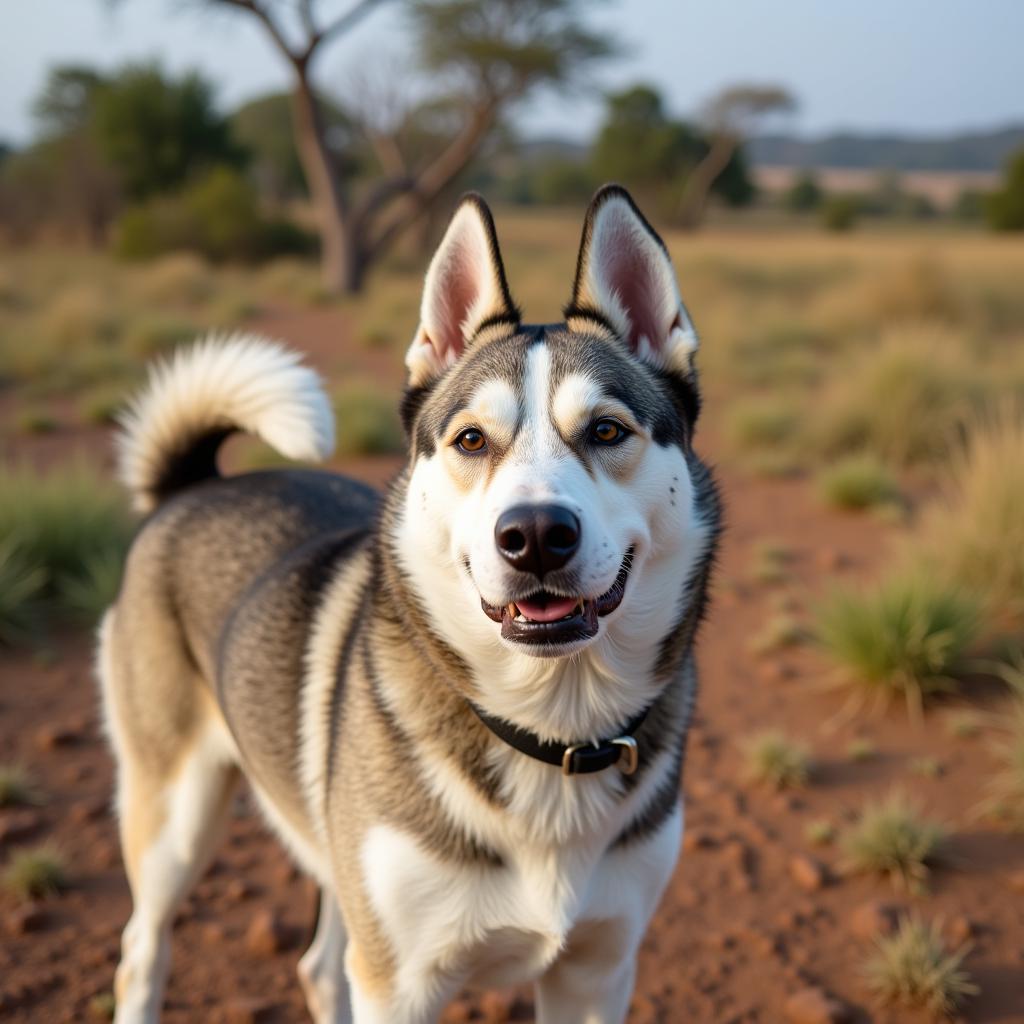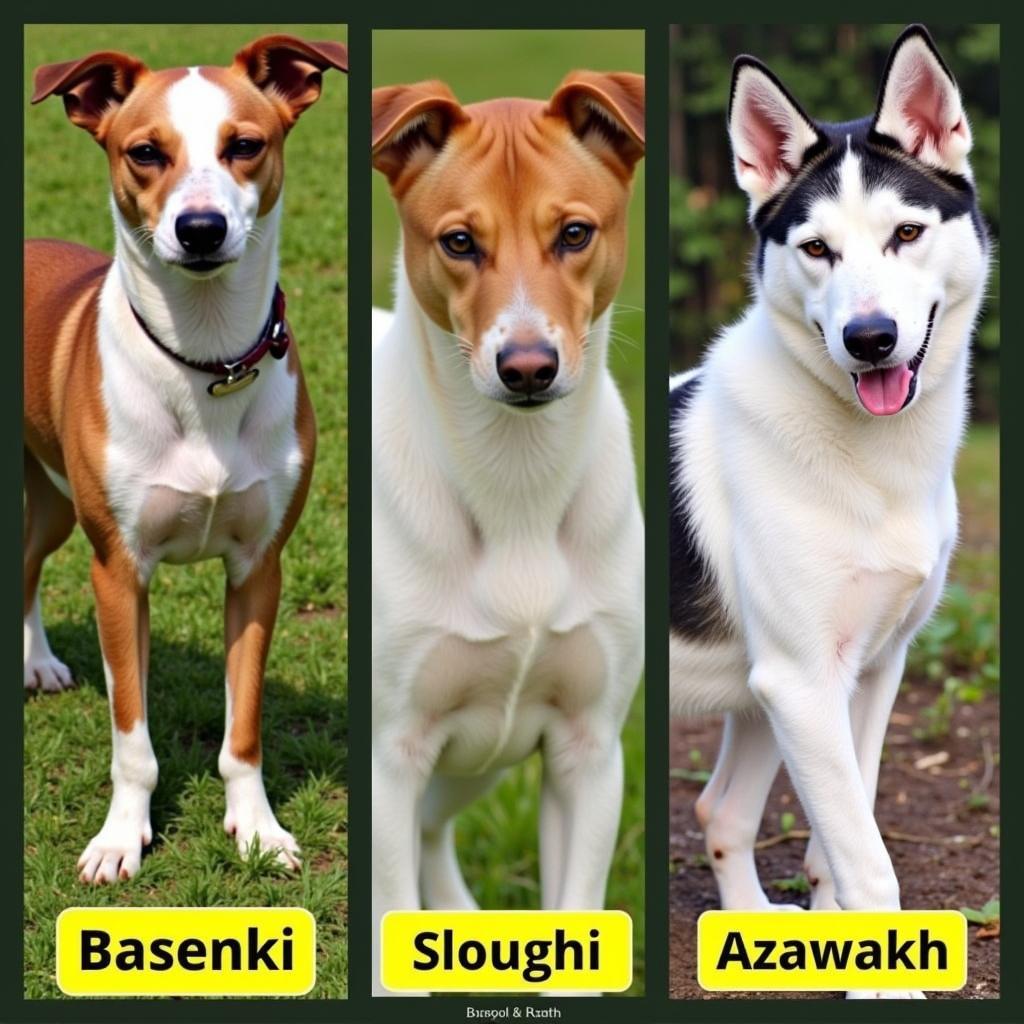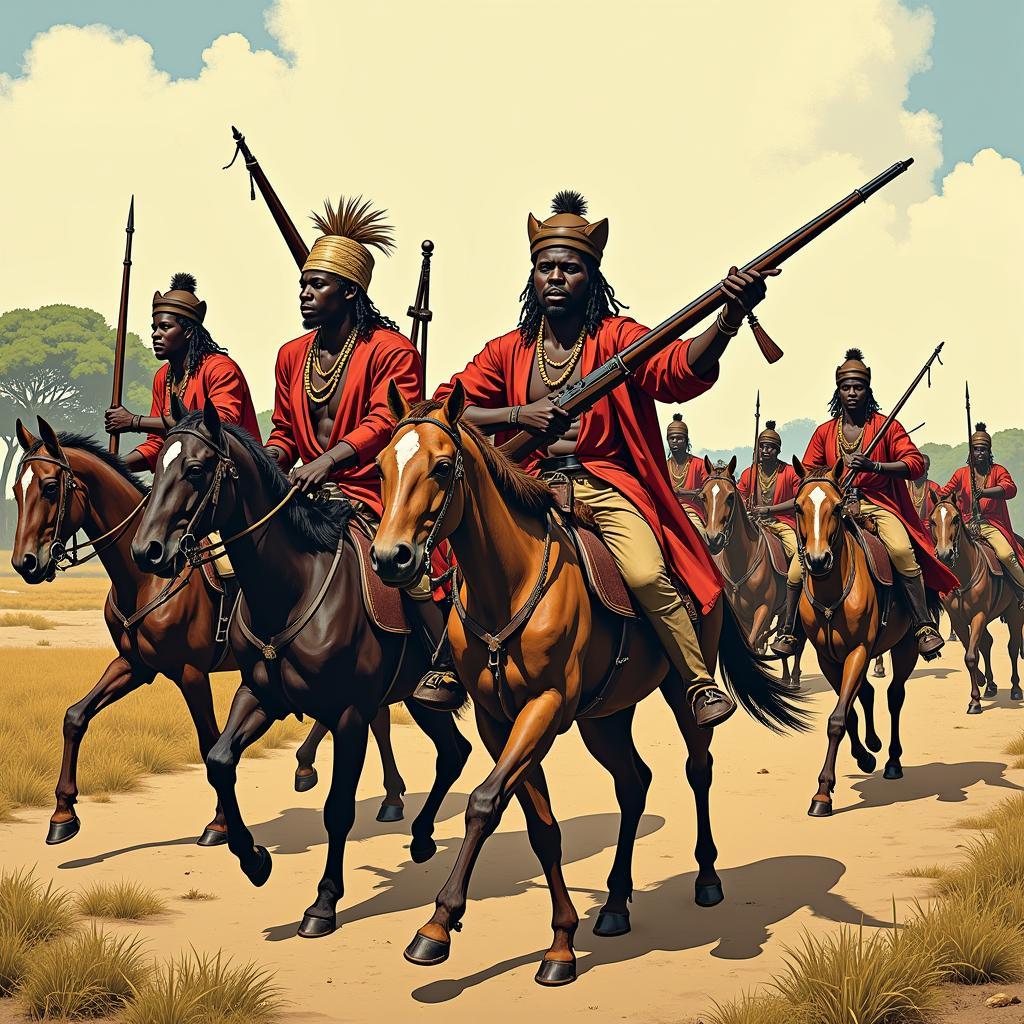Unveiling the African Husky: A Misnomer and a Celebration of Indigenous Breeds
The term “African Husky” is often used colloquially, but it’s important to understand it doesn’t represent a distinct breed. It’s a common misconception, often applied to dogs resembling huskies found in African countries. Let’s explore the fascinating world of these indigenous African breeds that share some husky-like characteristics, while celebrating their unique heritage and adaptations to the African environment.
Decoding the “African Husky” Myth
The image that pops into mind when someone mentions “African husky” is likely a dog with a striking resemblance to Siberian huskies: erect ears, a curled tail, and maybe even a similar coat pattern. However, true Siberian huskies are not native to Africa. The nickname arises from the presence of dogs in Africa that share some physical traits with huskies, leading to the informal label. These similarities are likely due to convergent evolution, where different species develop similar traits in response to similar environmental pressures.  African Dog with Husky-like Appearance
African Dog with Husky-like Appearance
Exploring Indigenous African Breeds: Beyond the “Husky” Label
Africa boasts a rich tapestry of indigenous dog breeds, each adapted to specific regions and lifestyles. While none are officially classified as “African huskies,” several breeds display husky-like traits. These include the Basenji, known for its unique yodeling vocalization; the Sloughi, a graceful sighthound; and the Azawakh, another elegant sighthound adapted to the harsh Sahara Desert. These breeds, though visually distinct from Siberian Huskies in many ways, sometimes exhibit similar features like a curled tail or prick ears, contributing to the “African husky” misconception.  Indigenous African Dog Breeds: Basenji, Sloughi, and Azawakh
Indigenous African Dog Breeds: Basenji, Sloughi, and Azawakh
Why the Confusion? Unpacking the Similarities
Why do some African breeds resemble huskies? One contributing factor could be ancient migration patterns and interbreeding. It’s possible that dogs with husky-like ancestors migrated to Africa centuries ago, influencing the development of certain local breeds. Another explanation lies in environmental adaptation. Both cold, snowy regions and hot, arid environments can favor certain physical traits, like a thick double coat for insulation or prick ears for improved hearing.
Are There Actual Huskies in Africa?
Yes, you can find Siberian Huskies in Africa, but they are not native. They are typically imported as pets or working dogs, just as they are in many other parts of the world. It’s crucial to remember that the presence of Siberian Huskies in Africa doesn’t validate the “African husky” as a breed.
Caring for an African Breed Dog
Owning any dog requires responsibility and commitment. African breeds, with their unique adaptations, may have specific needs. Researching their origins, understanding their temperament, and providing appropriate care are essential. For example, a short-coated breed like the Basenji might require extra protection in colder climates, while a sighthound like the Sloughi needs ample space to run and exercise.
What to consider before adopting an “African husky”:
- Climate: Does your climate suit the breed’s needs?
- Exercise: Can you provide sufficient exercise and mental stimulation?
- Grooming: What are the breed’s grooming requirements?
- Training: Are you prepared for the breed’s temperament and trainability?
 African Breed Dog Care and Training
African Breed Dog Care and Training
Embracing the Diversity of African Dogs
The term “African husky” while commonly used, is inaccurate. Instead of perpetuating this misnomer, let’s celebrate the incredible diversity of true indigenous African dog breeds. Each breed possesses a unique history, temperament, and adaptation to its environment, making them fascinating companions and a testament to the rich canine heritage of Africa. By understanding the distinctions between indigenous African breeds and Siberian Huskies, we can appreciate the beauty and uniqueness of each.
In conclusion, the “African husky” is a captivating yet misleading term. Understanding the rich tapestry of indigenous African breeds is crucial to appreciating their unique qualities and avoiding the perpetuation of misconceptions. So, next time you hear “African husky,” remember the fascinating story behind the name and the remarkable diversity of canine life on the African continent.
FAQ:
- Is the African husky a real breed? No, the “African husky” is not an officially recognized breed.
- What breeds are mistaken for African huskies? Breeds like the Basenji, Sloughi, and Azawakh sometimes get mistaken for “African huskies”.
- Why do some African dogs look like huskies? Convergent evolution and possible ancient interbreeding could be contributing factors.
- Are Siberian Huskies native to Africa? No, Siberian Huskies are not native to Africa; they are imported.
- What should I consider before adopting an African breed dog? Climate, exercise needs, grooming requirements, and temperament are important factors.
For any assistance, please contact us at Phone: +255768904061, Email: [email protected] or visit us at Mbarali DC Mawindi, Kangaga, Tanzania. We have a 24/7 customer service team.

